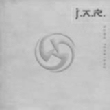|
| ||||

J.A.R. One could easily dismiss the idea of an authentic Czech funky rap band as ridiculous, when the European musical tradition is so deeply rooted in melodic expression. Well dear reader, search no further; J.A.R. is the real deal. Founded by two rappers Michal Viktorík and Oto Klempír, they came to depend heavily on Roman Holy for their musical direction. But how do they deal with the problem of a musical form which is fused so closely with English language? Big part of the hip-hop culture has always been the 'tude - and these Czech boyz got plenty. They have a right to feel cocky about their musicianship. There is no 'turntablist' here; just funky rhythms, tight horns and solid songwriting. What also makes homo fonkianz sound contemporary is the inventive production. (The singing voice could've bene mixed a little lower.) Take for instance the runaway hit Bulhári. It's a confident mixture of 70's funk (rhodes, oberheim, vocoder, synthbass) and 90's sampling; mix of singing of a 60's pop diva (Helena Vondrácková) with modern rap; lyrics in Slovak in a song about Bulgarians... But what about these lyrics? What was it that prompted the Bulgarian Embassy in Prague to file an official protest? What makes J.A.R. so authentic is that their lyrics don't make any sense. In order to subordinate a Slavic language to American pop expression, all the words have only one function: to convey a rhythm. None of the 'songs' have stories; there are no messages here - just moods. For instance:
The other memorable tracks were Pap muziek ('Pop Music' in Dutch) which features funk that would make Sly Stone proud, Dan Bárta's tense singing and the repeating calls of hey, hombre! It leads directly into Tokyo Bowling which is a conversation between two men - in Japanese. I also liked the cinematic Co vezl Dawydov? (What Did Dawydov Carry?) featuring an interrogation in the middle (Pow! Ah, coño! Chinga tú madre! Splat!) and Dokáze basová kytara Fender smírit národy? (Can a Fender Bass Guitar Reconcile Nations?) which features three basses. There are enough assorted other oddities (a random expression in German here and there, an odd little jazz number about metal fasteners, the graphic artist's references to Hungarian, etc) to satisfy everybody and to ensure repeated listening. If there ever was an 'international' album, this is it. So 'czech' it out! Copyright © 2000 Ivan Sever
| ||||
| © 2011 Luna Kafé |